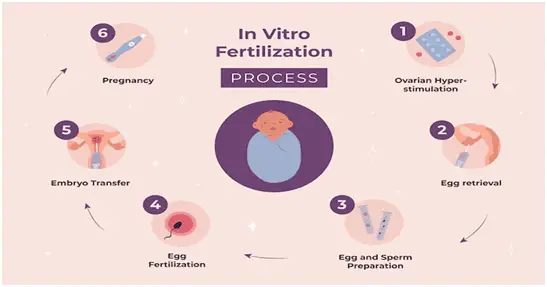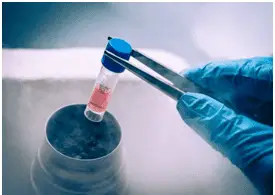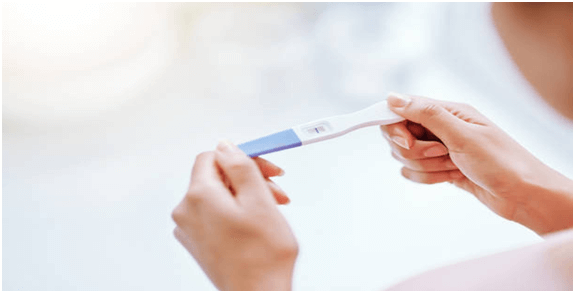Are you or your loved one dealing with infertility in Turner syndrome? So, you are likely seeking solutions and perhaps a path to parenthood. Remember, infertility is a journey, and with the right support and solutions, it can lead to the joy of parenthood.
Many women with Turner syndrome have embraced motherhood thanks to Nisha IVF Centre’s effective infertility treatment in Ahmedabad. Here, with advanced medical technologies and compassionate care, the dream of having a family can become a reality.
Nisha IVF stands out as one of the best IVF centre in Ahmedabad. Dr. Nisarg Patel provides customized fertility solutions, improving your chances of success. He is one of the founders of Nisha IVF and a competent infertility specialist.
Unlock the door to motherhood with Turner syndrome. Schedule a consultation with our fertility experts today!
Stay tuned as we dive deep into the nuances of infertility in Turner syndrome and explore effective solutions.
First, let’s understand the basics:
What is Turner Syndrome?
 Turner Syndrome (TS) is a genetic condition that affects females. It occurs when one of the two X chromosomes is partially or completely missing. This can lead to a variety of physical and medical issues. These include short stature, heart defects, and infertility. This condition impacts approximately 1 in 2,500 live female births.
Turner Syndrome (TS) is a genetic condition that affects females. It occurs when one of the two X chromosomes is partially or completely missing. This can lead to a variety of physical and medical issues. These include short stature, heart defects, and infertility. This condition impacts approximately 1 in 2,500 live female births.
A prominent consequence of TS is infertility. It results from the underdevelopment or dysfunction of the ovaries. It inhibits the normal production of crucial reproductive hormones and the maturation of eggs. Women with TS often face premature ovarian failure. This causes their ovaries to malfunction at a younger age.
Discover how personalized care can assist you with the challenges of Turner syndrome fertility treatment. Book an appointment with our seasoned fertility specialists.
Curious about how widespread this issue is? Let’s know:
How Common is Infertility in Turner Syndrome?
Infertility is prevalent among women with Turner Syndrome (TS). It affects nearly all individuals with this condition. Statistics show that almost 98-99% of women with TS experience infertility due to a phenomenon known as ovarian dysgenesis.
In this condition, the ovaries are underdeveloped and often fail to function properly. This severely impacts a woman’s ability to conceive naturally. Addressing this issue can be challenging. However, it is essential to shed light on women’s challenges with TS. By understanding and sharing this information, we can support women with TS on their journey.
Empowering women in their fight against infertility. Explore our result-oriented female infertility treatment in Ahmedabad. Connect with us today.
Diving deeper, let’s unravel the causes:
What are the Causes of Infertility in Turner Syndrome?

One of the major concerns for women with TS is infertility. It mainly results from issues like ovarian dysgenesis and primary ovarian insufficiency (POI).
Ovarian dysgenesis refers to the underdevelopment of ovaries. It leads to a deficiency in the number of functional eggs. Meanwhile, POI implies early depletion of ovarian follicles before the age of 40.
Apart from these primary factors, other aspects can also contribute to infertility in TS. Hormonal imbalances, such as irregular or absent menstrual cycles, are common. Structural anomalies, like a horseshoe kidney, can sometimes be associated with reproductive challenges. Seeking expert guidance and care can help understand and manage these issues effectively.
Overcome the hurdles of infertility. Consult our experts and pave your way to parenthood with our cutting-edge female and male infertility treatment in Ahmedabad. Inquire with us now!
Thinking about treatment options? Let’s explore:
Are There Any Treatments Available for Infertility in Turner Syndrome?

Modern reproductive medicine offers several paths to help you explore the joy of motherhood. From fertility treatments to assisted reproductive technologies, like IVF or egg donation, there are options. They can increase the chances of conceiving.
In Vitro Fertilization (IVF) is a process that includes fertilizing an egg with sperm in a lab. Then, implanting the resulting embryo (fertilized egg) to the uterus to achieve conception.

For women with TS, especially those with a variant known as mosaic TS, early intervention is crucial. In this condition, some cells have two complete X chromosomes, and others do not. This causes some ovarian function.
IVF isn’t the only option. Women with TS may also opt for egg donation. In this method, an egg from a healthy donor is fertilized and implanted in the woman’s uterus with TS. If you are considering this path, it is comforting to know that success rates using donor eggs can be high. Women with Turner Syndrome can carry a pregnancy when using donated eggs combined with IVF.
Regardless of the chosen path, early consultation with an infertility specialist in Ahmedabad like Dr. Nisarg Patel can impact the success of treatments.
Experience the joys of parenthood with our advanced infertility treatment in Ahmedabad. Contact us today to make your dreams a reality.
Do the outcomes match the efforts? Let’s check.
What is the Success Rate of Fertility Treatments in Turner Syndrome?
IVF is a popular fertility treatment that many women with Turner Syndrome consider. The success rates of IVF for women with Turner Syndrome can vary. Generally, live birth per embryo transfer rates can be lower than the general population.
Some studies show success rates as high as 20-30% for women under 35. However, it is essential to consult with a fertility specialist for personalized information. Adoption and surrogacy are also options that women with Turner Syndrome might explore to build their families.
While Turner Syndrome may affect fertility, treatments like IVF offer options for parenthood. Consult a seasoned fertility expert to know your options and the chances of success based on your situation.
But what about pregnancy risks? Let’s understand:
How Does Turner Syndrome Affect Pregnancy and Neonatal Outcomes?
Turner Syndrome (TS) can impact pregnancy and neonatal outcomes. Women with TS often face challenges in conceiving due to ovarian insufficiency. However, those who do become pregnant are at an increased risk for complications. Miscarriages and stillbirths are more common among TS pregnancies. Additionally, expectant mothers with TS are often classified as high-risk pregnancies. It necessitates careful monitoring and medical support throughout the gestation period.
Pregnant women with TS are at high risk for hypertension, gestational diabetes, and heart complications. It’s crucial to work with healthcare professionals who specialize in managing high-risk pregnancies. This will help ensure the best possible outcomes for the mother and the baby.
Your journey to joy doesn’t end here. Consult our compassionate experts for recurrent miscarriage treatment in Ahmedabad.
What are the Options for Fertility Preservation in Turner Syndrome?
 Living with Turner Syndrome doesn’t mean you have to give up on your dreams of becoming a parent. There are several options to preserve fertility and increase the chances of having a biological child.
Living with Turner Syndrome doesn’t mean you have to give up on your dreams of becoming a parent. There are several options to preserve fertility and increase the chances of having a biological child.
Preserving eggs is a potential option for young girls diagnosed with TS. Cryopreservation methods enable the freezing of eggs or ovarian tissue for future use. It is beneficial if there are any functioning ovarian follicles present.
For women with TS interested in preserving fertility, the options include:
This involves harvesting and freezing eggs for future use.
- Embryo Cryopreservation:

In this method, the eggs are fertilized with the sperm before freezing them. Then, the resulting embryos are frozen.
- Ovarian Tissue Cryopreservation:
A newer technique where ovarian tissue is removed and frozen for re-implantation later.
Embracing these options can open up new possibilities for family planning. However, consulting a fertility specialist is crucial to discuss these choices. It depends on one’s unique circumstances, such as ovarian function and overall health.
Conclusion
Navigating infertility in Turner Syndrome can feel overwhelming. However, with the right information and support, you are not alone on this journey. Exploring fertility treatments, assisted reproductive technologies such as IVF, egg donation, and fertility preservation options can provide hopeful paths toward parenthood.
By consulting experienced infertility specialists at Nisha IVF an ivf hospital in ahmedabad, informed decisions can be made to align with your dream of building a family.
FAQs:
Q1. How does turner syndrome cause infertility?
A: Turner’s syndrome causes infertility because it affects your ovaries. These organs are responsible for releasing eggs. Most girls with Turner’s syndrome have underdeveloped ovaries. They can’t produce eggs regularly. No eggs mean no chance of natural conception.
Q2. Is IVF possible in Turner syndrome?
A: Yes, IVF is possible for women with TS. While your eggs might not be viable, using donor eggs can make pregnancy achievable. It allows you to experience the joy of motherhood.
Q3.Can girls with Turner syndrome get periods?
A: Girls with Turner syndrome can experience challenges with their menstrual cycle. Most don’t start their periods naturally due to underdeveloped ovaries. However, hormone therapies can kick-start menstruation. This gives them a typical adolescent experience.
Q4.What is the primary cause of infertility in Turner syndrome?
A: The main reason behind infertility in Turner Syndrome is the underdevelopment of the ovaries. In most cases, the ovaries don’t mature as they should. This leads to an inability to release eggs.
Q5.What is Mosaic Turner Syndrome, and how does it affect fertility?
A: In Mosaic Turner Syndrome, some cells have the usual two X chromosomes, while others have only one. It is like a patchwork quilt of genetics. This condition can sometimes lead to a better fertility prognosis due to the presence of some “normal” cells. It may result in less ovarian dysfunction.
Q6.How effective are fertility treatments in Turner Syndrome?
A: Fertility treatments, like IVF using donor eggs, can be effective for women with Turner Syndrome. Although pregnancy carries risks, assisted reproductive technologies can help women become mothers. It is like finding a new route when the usual path is blocked.


